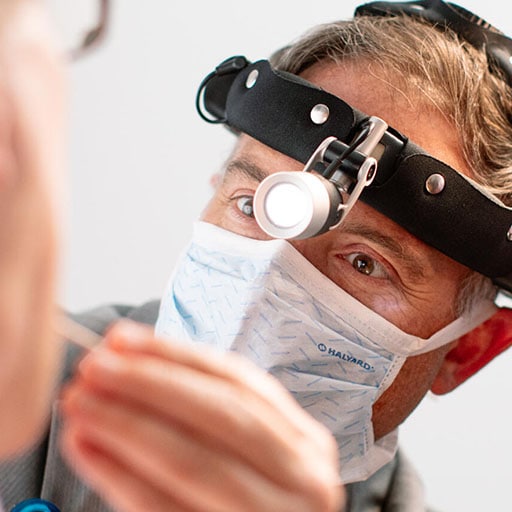When to Seek an ENT Clinic for Chronic Symptoms
When to Seek an ENT Clinic for Chronic Symptoms
Blog Article
Exploring the Area of Otolaryngology: What to Expect When You Speak With an ENT
Otolaryngology, typically referred to as ENT, incorporates the diagnosis and therapy of throat, nose, and ear disorders. For those experiencing associated concerns, speaking with an ENT specialist can provide clarity and alleviation. Recognizing what to anticipate during such assessments is essential for effective communication and treatment. This overview will outline key elements of the ENT experience, including typical factors for check outs and the processes associated with diagnosis and therapy.

Recognizing Otolaryngology: A Summary
Otolaryngology, typically described as ENT (Nose, throat, and ear) medication, is a specialized branch of medication that concentrates on the diagnosis and therapy of conditions impacting these important areas of the human body. This field incorporates a vast array of conditions, consisting of those pertaining to hearing, balance, breathing function, and speech. Otolaryngologists are trained to manage both clinical and surgical therapies, making use of sophisticated strategies and modern technologies. Their proficiency extends beyond conventional disorders, dealing with concerns such as allergies, sinus infections, and hearing loss. In addition, they play a crucial role in the administration of head and neck cancers, offering detailed treatment customized to individual patient needs. In general, otolaryngology stays important for preserving health and wellness and top quality of life in afflicted people.
Typical Factors to See an ENT Specialist
Many people look for the proficiency of an ENT expert for a range of factors, mirroring the varied nature of conditions that affect the ear, throat, and nose. Common issues include persistent sinusitis, which usually brings about persistent nasal blockage and facial pain. Allergies and their connected signs, such as itching and sneezing, additionally prompt sees to these professionals (Otolaryngologist). Hearing loss, whether progressive or abrupt, is another considerable factor for consultation. Furthermore, people might seek analysis for throat conditions, consisting of consistent hoarseness or swallowing difficulties. Sleep apnea, defined by disrupted breathing throughout sleep, is regularly dealt with by ENT specialists too. Each of these conditions highlights the relevance of specialized care in handling intricate ENT-related wellness concerns
Preparing for Your ENT Visit
When planning for an ENT visit, it is important to collect pertinent info and take into consideration any kind of specific worries. Clients need to compile a thorough medical history, including previous ear, nose, or throat issues, surgical treatments, and current medicines. Recording signs-- such as extent, duration, and frequency-- can offer valuable insights for the ENT professional. In addition, people ought to prepare a listing of inquiries they want to ask, ensuring that all problems are attended to during the visit. Bringing along any type of appropriate clinical documents or test results can even more assist the ENT in understanding the person's problem. Clients need to confirm their appointment details, consisting of area, time, and date, to reduce any type of last-minute confusion. Correct prep work can improve the performance of the appointment and result in far better end results.
What to Expect During the Consultation
As the consultation starts, the individual can anticipate to take part in a detailed discussion with the ENT expert concerning their symptoms and case history. The professional will inquire concerning the period, regularity, and seriousness of signs such as hearing loss, nasal blockage, or sore throat. In addition, the individual's previous clinical problems, medicines, and any type of pertinent family members background will be assessed, aiding the professional in creating a total understanding of the patient's health. The ENT might additionally inquire about lifestyle variables, such as exposure to irritants or toxic irritants. This open discussion develops a structure for the consultation, making certain that the client's worries are attended to and setting the phase for any required analyses or suggestions for therapy.
Analysis Examinations and Treatments in Otolaryngology
A variety of diagnostic tests and treatments are important in otolaryngology to precisely examine and detect conditions impacting the nose, throat, and ear. Usual tests include audiometry, which gauges hearing function, and tympanometry, assessing center ear pressure. Nasal endoscopy allows visualization of the nasal flows and sinuses, while laryngoscopy checks out the throat and vocal cords. Imaging techniques, such as CT scans and MRIs, supply in-depth views of head and neck structures. Allergy testing may additionally be performed to recognize triggers for sinus or respiratory issues. These analysis devices allow ENT professionals to develop an extensive understanding of patients' click here problems, ensuring tailored and reliable administration plans. Appropriate medical diagnosis is necessary for successful therapy end results in otolaryngology.
Treatment Alternatives Offered by ENT Specialists
ENT experts provide a selection of therapy options tailored to deal with particular problems influencing the nose, throat, and ear. These therapies vary from conventional methods, such as drug and lifestyle alterations, to even more intrusive treatments. As an example, allergies might be managed with antihistamines or immunotherapy, while chronic sinusitis might need nasal corticosteroids or sinus surgery. For hearing loss, ENT specialists commonly advise listening device or surgical interventions like cochlear implants. In situations of throat problems, options can include speech treatment or surgeries to get rid of blockages. Additionally, they might supply support for handling sleep apnea, including making use of CPAP tools or medical treatments. Overall, the goal is to improve patients' lifestyle through customized care and effective treatment approaches.
When to Look For Follow-Up Treatment With an ENT
When to seek follow-up treatment with an ENT specialist is essential for managing recurring signs or issues associated to ear, throat, and nose conditions, acknowledging. Clients should consider setting up a follow-up appointment if symptoms persist regardless of first therapy, such as persistent ear pain, nasal congestion, or throat pain. Adjustments in hearing, equilibrium problems, or unusual nasal discharge may additionally warrant more assessment. Furthermore, if a patient experiences adverse effects from recommended medications or has undertaken a medical procedure, follow-up care is essential to keep an eye on recovery and deal with any kind of concerns. Prompt assessments can ensure reliable management of conditions, protect against potential problems, and offer comfort concerning one's health. Looking for follow-up treatment promotes proactive health and wellness administration in otolaryngology.
Often Asked Concerns

What Credentials Should I Look for in an ENT Professional?
When looking for an ENT expert, one should seek board certification, appropriate experience, and strong person reviews. Furthermore, effective communication abilities and a compassionate technique can substantially enhance the total treatment experience.
Exactly how Do I Pick the Right ENT for My Demands?
Choosing the appropriate ENT specialist involves examining their qualifications, experience, and individual reviews (ENT Clinic). It is crucial to ponder their communication design and strategy to therapy, ensuring they line up with the individual's certain wellness needs and preferences
Exist Any Kind Of Dangers Related To ENT Procedures?
The risks related to ENT treatments might consist of infection, bleeding, anesthesia complications, and possible damage to bordering frameworks. Patients must review these risks with their medical professional to recognize individual problems and guarantee educated choices.
How Can I Handle Anxiety Before My ENT Consultation?
To handle stress and anxiety prior to a consultation, people can exercise deep breathing workouts, imagine favorable outcomes, prepare concerns in breakthrough, and look for assistance from friends or family, promoting a feeling of reassurance and peace.
What Should I Do if I Experience Adverse Effects From Therapy?
If negative effects from therapy happen, the person needs to promptly report them to their health care copyright. Adjustments to therapy or added interventions may be necessary to ensure security and effectiveness in handling their condition - ENT. As the examination starts, the client can expect to engage in a detailed discussion with the ENT professional regarding their signs and clinical background. These diagnostic devices make it possible for ENT professionals to create a thorough understanding of clients' conditions, making sure customized and reliable administration plans. ENT professionals use a selection of therapy alternatives customized to attend to particular conditions affecting the nose, ear, and throat. When seeking an ENT expert, one must look for board certification, pertinent experience, and strong person evaluations. Picking the ideal ENT specialist entails evaluating their credentials, experience, and client reviews
Report this page